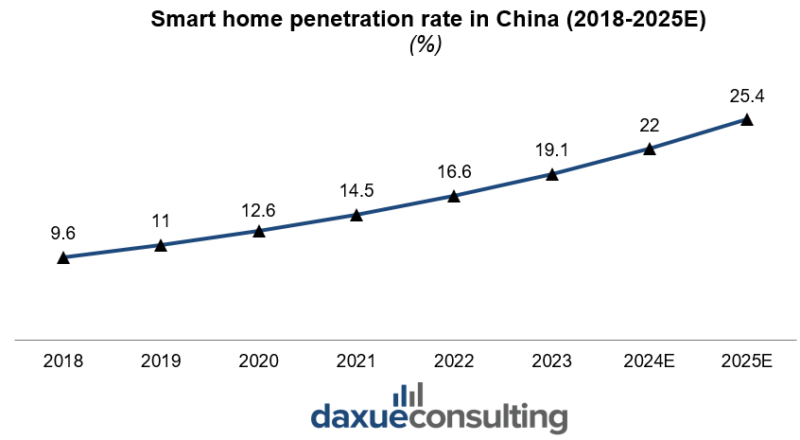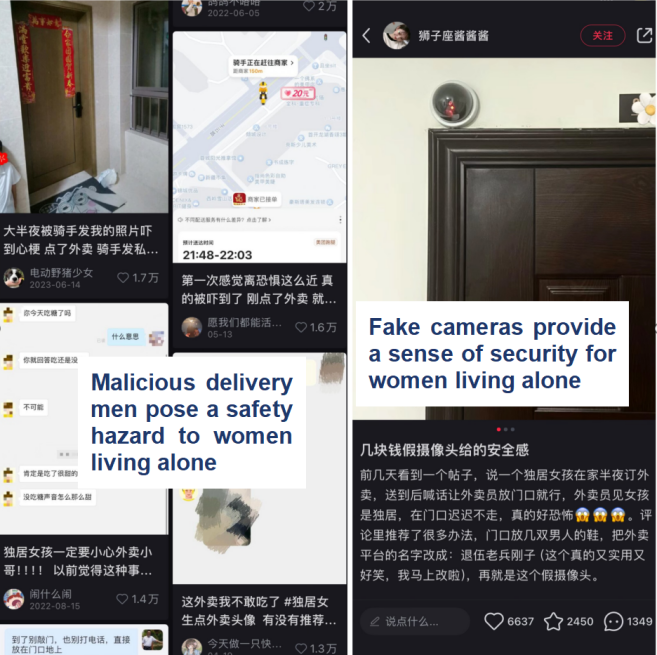The Lazy Economy is rapidly growing in China. Services like instant delivery, online ordering, and smart home devices are created to meet people’s needs with minimal effort. This trend reflects a fast-paced lifestyle and a pursuit of simplicity, driving innovation in business models and technology. However, its swift expansion also presents challenges.
Download our 2024 China Summer Sports Market report

Who’s driving the lazy economy?
Young Chinese consumers, raised during the economic boom, expect a high standard of living and prioritize family care. As they enter adulthood, their desire to maintain or improve this comfort drives demand for in-home services like cleaning, cooking, and organization. With increasing social pressure, they seek more personal time and use technology, including online shopping, food delivery, and smart home products, to simplify daily routines and boost efficiency. The emergence of ‘lazy people devices’(懒人神器) and smart home products has helped them simplify their daily routines. This improves their efficiency and manage their daily lives more effectively.
This generation seeks convenient devices to maintain the comfort of their upbringing. Amid society’s accelerated pace, they use technology to reduce worries and free time for personal interests and careers. This trend is also embraced by the post-80s and post-90s generations, particularly those aged 26-40 and married with children. According to iiMedia, the middle-aged group aged 26-40 and the married and childbearing group are the main groups of domestic helpers, accounting for 79.5 % and 75.3 % respectively.
How social media and innovation are redefining laziness?
Online food delivery and in-home services have long been crucial components of China’s lazy economy, offering time-saving and convenient solutions. Post-pandemic, consumers now seek higher quality and greater satisfaction from these services. They value smart budgeting and cost-effectiveness. These consumers are also willing to pay extra for streamlined processes and a convenient user experience.
Smart appliances take the load off people
Lazy people now have high expectations for intelligent and convenient home living. They seek not only convenience but also smart homes and efficient services to maximize their limited free time and fully utilize their home space. To meet this demand, innovative products are increasingly available, with the smart home market projected to reach USD 52 billion by 2028 at an annual growth rate of 12.57%. In the kitchen, multifunctional air fryers and dishwashers are becoming popular, saving time on cooking and cleaning while simplifying operations through smart technology. Users can also control multiple appliances via mobile apps, enhancing everyday life with whole-house intelligence.
Embrace convenience in outdoor activities
Today, China’s lazy economy extends beyond the home, influencing areas such as socializing, sports, and outdoor adventures. This new wave of ‘lazy people’ embraces an attitude that values efficiency and convenience while still enjoying life and exploring the world. They use technology and innovative products to minimize tedious tasks and enhance comfort.
Lazy camping, for instance, has become popular in recent years, offering a blend of traditional camping and hotel accommodation. These campsites often feature comfortable tents, beds, lighting, and amenities like hot showers and Wi-Fi, allowing people to enjoy nature without sacrificing daily comforts. Inflatable couches have also gained popularity for outdoor activities due to their portability and ease of use. Whether on camping trips, hikes, or at outdoor music festivals, these couches are widely used. Their clever design allows them to be quickly inflated by filling them with air and sealing the opening, providing a convenient way to rest outdoors. Their lightweight and portable nature makes inflatable couches ideal for outdoor enthusiasts.

Social media’s role in fueling the trend
The emergence and popularity of more and more lazy products can’t be separated from the power of social media. The topic of #Lazy People Device on Xiaohongshu has already had 550 million views. The popularity of these products has been accelerated by the popularity of live streaming in recent years. In today’s market, so-called ‘lazy people devices’ are popular because of their low price, which greatly reduces the barrier to purchase for consumers. Consumers can easily try out these products, and even if they find a device impractical, they are not burdened by the price. This low cost is made possible by China’s well-developed manufacturing system, which allows for rapid product design and iteration, thus keeping the price of these devices within an acceptable range.
As new products are developed and commercialized, they are able to meet the changing needs and desires of Chinese consumers. The high level of consumer demand drives further product iterations and improvements, creating a positive feedback loop. In order to achieve profitability, live-streaming platforms and key opinion leaders (KOLs) market their products by interacting with consumers and tapping into their hidden needs. This interaction not only helps companies understand consumers better but also inspires innovation and differentiation.

The promising future of China’s lazy economy
Intelligence and convenience are core features of lazy economy products. As technology continues to advance, these product attributes are expected to take an even more significant leap forward. The lazy economy itself is booming while accelerating its promotion on a wider scale, attracting more funding and support.
With the rapid development of cutting-edge technologies such as artificial intelligence and big data, service efficiency and user experience have been improved like never before. The processing of data by big data provides users with personalized shopping recommendation services, reducing the time users spend searching for relevant products. As well as the popularity of artificial intelligence means that in the future, more common products in life scenes have the possibility of accessing the Internet, which can bring greater convenience to people, such as the increasingly intelligent whole-house home.

Lazy economy expands in lower-tier cities
Consumption potential in third- and fourth-tier cities and rural areas is being rapidly released. As the lower-tier cities’ living standards rise, people’s demand for convenient services growing. The popularity of e-commerce platforms, instant delivery services, and community group-buying in these areas, as well as workers returning to their hometowns, has led to the penetration of related products on a wider scale, allowing the lazy economy to find a broad space for development in these emerging markets, further boosting the expansion of the overall market size.
The development of China’s lazy economy has attracted entrepreneurs and investors. This in turn created new employment opportunities and drove the development of many related industries. The development of emerging industries is somewhat protected by the policies and measures introduced by the government. In addition to promoting greater coverage of the information network, the government can also introduce relevant policies to protect the rights of consumers after the sale and other rights, regulate the market order, and ensure the healthy development of related industries.
The dangers associated with its popularity
Personal information leaks
The rise of the lazy economy has undoubtedly brought great convenience to modern life. However, the series of challenges and problems that come with it cannot be ignored. Firstly, privacy protection has become a prominent issue. Convenient services such as in-home service and online food delivery collects users’ personal information, such as address and contact information while providing convenience. And this information can be easily leaked, posing security risks to users, especially women living alone. They may be at risk of burglary, harassment, or even more serious crimes. Apart from violating the peace of mind of an individual’s life, the leakage of privacy may also lead to psychological panic and insecurity. This will lead to serious security risks, despite such services were originally designed for convenience.

Environmental problem
Although disposable and low-priced products provide convenience for life, they are often accompanied by a large amount of resource consumption and environmental pollution in the process of production and use. While low-priced products use more energy and raw materials in the mass production process, some manufacturers may use unsustainable resources and production methods in order to reduce costs and will sacrifice green production standards.
Quality assurance
Product quality issues should not be ignored. Low-priced products may be difficult to achieve good quality assurance due to the need for cost control. Take online food delivery services as an example, in order to reduce costs and prices, some businesses will adopt cost-saving measures in the selection, processing, and storage of food, which may sacrifice the hygiene and safety standards of the food.
In addition, it may also pose safety risks during the delivery process, such as contamination or spoilage of food. Under such circumstances, consumers are very much assured that every process is safe and hygienic. Moreover, low-priced products often lead to lower consumer expectations of quality. When faced with quality problems, they are more likely to choose to discard or repurchase the product instead of pursuing after-sale services. This mentality reduces merchants’ investment in after-sales service in order to maintain low prices. However, although this practice can reduce costs in the short term, the long term may damage the reputation of the business and consumer trust. Thus, affecting the long-term development of enterprises.
Inside China’s booming lazy economy 2.0
- Young people are the main consumers behind China’s booming new lazy economy, with consumers of other ages joining the trend
- Smart appliances and convenient products reduce hassle for people living indoors and having outdoor activities
- Lazy products can’t be sold without a social media push, and consumer demand is in turn driving rapid market growth
- As more investors entered the market, a surge of innovative and advanced products ensued, expanding the original market
- Behind the convenient lifestyle comes the hidden danger of personal information. Environmental issues and product quality have also become key issues






